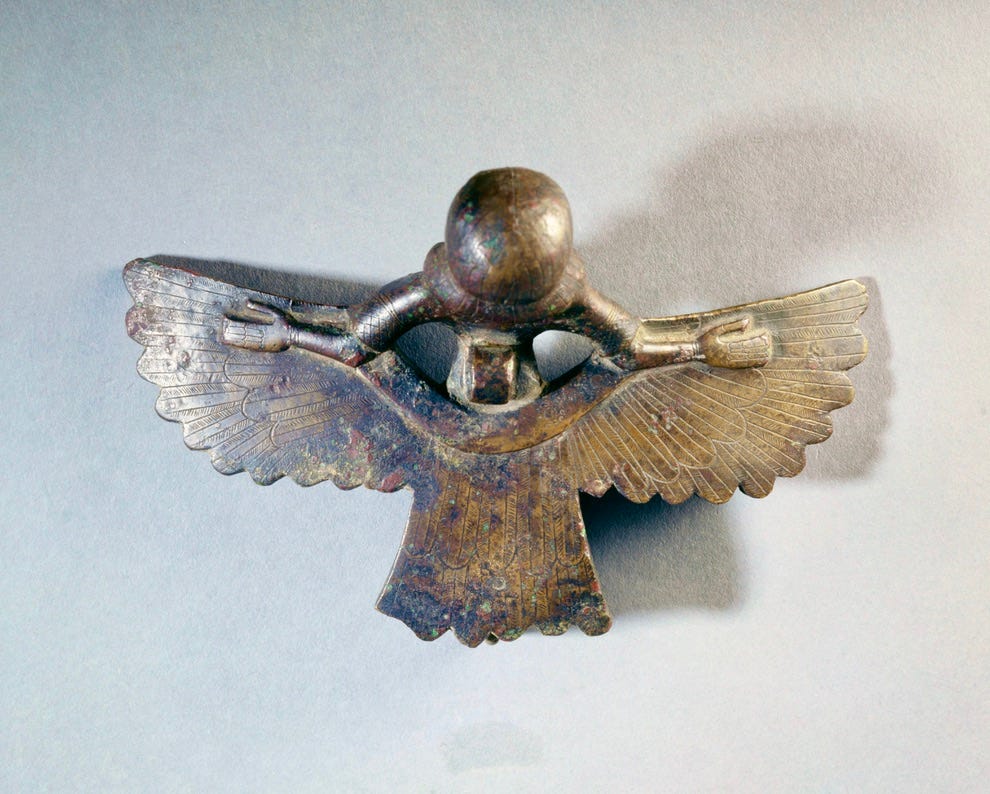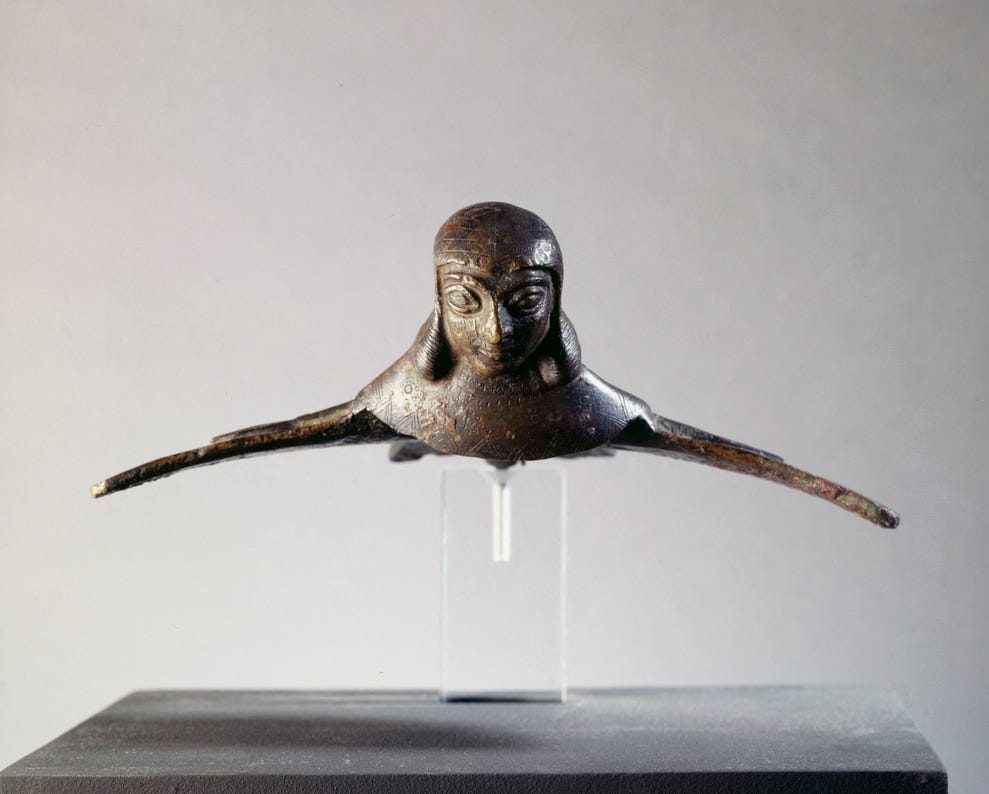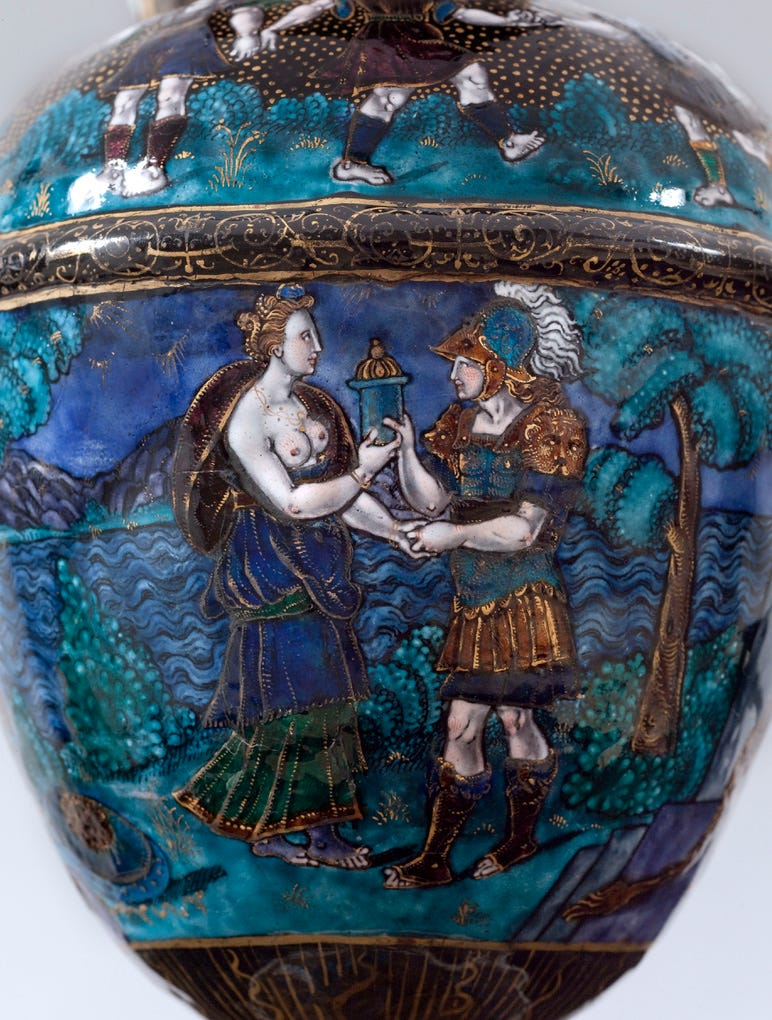Parthenope invented a ricotta cake—and you Odysseus? How dare you.
Let us go back to the 6th century BCE to the legend of how Naples rose a city of music and also got a time-honored dessert.
Naples is a city of legends on top of legends and no one cares whether they are incongruous or true. Some Neapolitans still refer to themselves as Parthenopeans, by the way, that is, we gave the siren gifts with which to make pastiera, a famously delicious ricotta cake with candied citrus peel and cinnamon. She was the gift that kept on giving, Odysseus. You? Yes, I’ve kept up with your tales—and let me tell you, you needed help, my friend.
If you are detecting a tone, you are correct. Parthenope has been wrongly accused of wanting to enslave people for too long, blamed for putting this man’s life at risk, tying himself to the ship, unable to open his heart at the time. She was a healer, man, gifted.
No one in this region had any issues…no one’s life was in danger, you see. We were all fine, enjoying the sweet symphonies she made with her voice, and oven. Music is considered food here, and is music not sweet, Odysseus? Are there not different notes in the aroma of a pastiera baking in the air? Smell the orange blossom, the vanilla, the cream with the sugar, apparently, that entered our food thanks to the Arabs.
You had PTSD, Odysseus. You were hallucinating. It’s okay, I have been there, I can speak from personal experience. Parthenope cannot help that she felt trouble and despair and confusion in the heart of a man coming through our bay. Again, I repeat, a people were present, at the time, on the shores, led by Franco Franzese who were not in the throws of turmoil and despair and also, desire, Odysseus. The return home from war is long, we can all agree. The metaphor is real.
I do not know what to tell you about listening to the warnings of sorceresses, covering your ears. You’re getting free concerts from singing mermaids who also bake. Were you not hungry in all senses of the term? Is music not a healer? Does a salve or antiseptic not hurt, sometimes, in cleaning the wound? This was a medicinal experience.
“You are in the colony of Parthenope, Odysseus. Come to your senses man.”
I will accompany you to these rocks that “threaten you” to show you it is all an illusion man with my sandal firmly planted, palm welcoming you. I have to drop off eggs, anyway, sugar, and ingredients such as these. Here’s my little sack. I will take you to the waterfall so we may bathe in good fortune—money for all. Franco Franzese will lead us.
Truly speaking, this is the origin story of Naples, Italy—a legend though it may be. And isn’t it amazing that as a city of music they trace their lineage to this siren? Since the word “legend” implies a little truth and invention is mixed in, who was she? This was a woman with wings, regardless if she was a bird or a fish.
Was Naples called “Phalerum” before Parthenope? Phalerus was a member of the Argonauts—a band of Greek heroes who accompanied Jason in his quest for the Golden Fleece before the Trojan War. Parthenope washed ashore at the Tower of Phalerus, now downtown Naples.
“We will rise a city of music!”
The people declared. And they did.
That would place us right before an end of a world—the Bronze Age collapse. And it’s a moment in time that had begun sparkling out there in my mind, and my hypnotherapist reflected the same. Time doesn’t function linearly; points in the past come into focus at different present moments, and why is that?
In World War II, the city descended into the ancient subterranean channels in the span of fifteen minutes. A woman went into labor. They named the baby Siren. They became a family, according to a tour guide, to rise together with the Allied Forces to kick the Nazis out—The Four Days of Naples. Vesuvius then exploded for two weeks. Sometime before, Nero gave a little lyre performance in Naples. Vesuvius exploded also then. He made everyone stay in their seats; he believed that the Gods were applauding him, so let us look at who is doing the entrapping here with music and sirens? Not Parthenope.
“You cannot just go around here fixing streets, putting in metro lines,” Franco Franzese said. The more you go digging into history, it’s true, the more you unearth and uncover. I keep finding new threads. Where to go next? It doesn’t end. It’s endless, isn’t it, that’s science, no matter in which direction you go…We will travel through time to discover the many stories and cultures that unfold and enfold into this city’s rich, long history with volcanoes that blow up.
“Then, the dark days come…”
A Neapolitan gestured kilometers into the air with a smile, Vesuvius across the way, a skirt of lights disappearing up its slope. “The path of its destruction,” he continued on the cliffs of Posillipo, “depends on how the winds blow…” So much drama in the forces of nature; it’s an awesome, terrifying, mysterious world.
More to come. Thanks for reading.
Enjoy,
Maria
*Thank you to the Paris musées collections for my images—I spend time going through their database.







